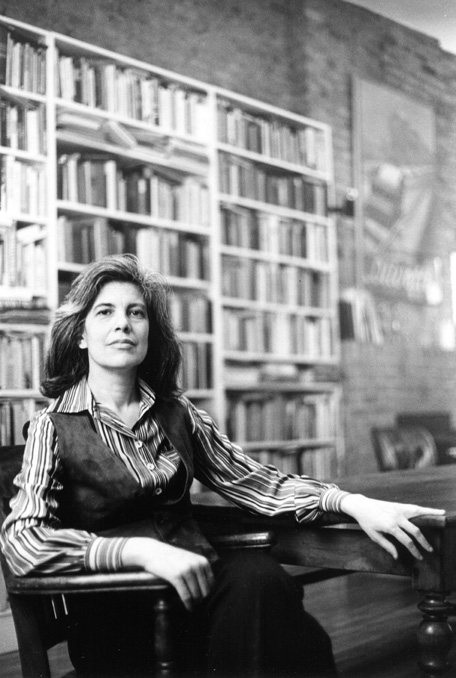Alright, so I was doing research for another article and I got down this rabbit hole that I had to share. For those of you who don’t know Susan Sontag, she is a philosopher, author and general-purpose public intellectual from the late 20th century. She is most famous for her studies in popular culture, aesthetics, literary criticism and generally being right about everything, but she also dabbled in fiction history and producing plays for the Bosnian government. Her best musical analog would probably her acquaintance and occasional collaborator Patti Smith, whose liner notes Sontag occasionally wrote; she’s wordy, extremely intelligent and earnestly political. This is to say, she isn’t the very last person you would expect to see on the features list of a techno record, but she’s definitely pretty far down on the list.
However, as the title might suggest, Sontag did write exactly one published song in her career, a song by the American electroclash techno group Fischerspooner. If you’re unfamiliar, which any decent person would be, Fischerspooner was an indie art duo consisting of Warren Fischer, a classically trained musician, and Casey Spooner, an avant-garde theater kid (the worst subspecies of an already unfortunate group) that made artsy techno-tinged synthpop in the brief electropop craze.
Susan Sontag is a featured songwriter and vocalist on the anti-Iraq war song, “We Need a War,” off their second album. I actually have no evidence that Sontag provided the female vocals on this song, but I’m going to say it anyway because it makes me laugh. For reference, Fischerspooner were druggie club rats while Sontag was a poetry lesbian with a Ph.D. in her ’70s who my professors never shut up about. This should not work on any level, and yet the song is actually alright. It works partially because Sontag remains very restrained, singing only a few words and phrases to fill in the gaps of the music. Considering that Iraq War protest music was usually so unbearably on the nose, I appreciate Sontag’s commitment to the lyrical austerity of electronic music. It’s easy to read her lyrics in the context of political work, she is lightly implying that the United States fervor for war was a part of a proto-fascist cultural fetish for dominance and glory, but she manages to keep the words to a minimum, meaning that song keeps a sense of subtlety and taste that was so…so lacking at the time.
Sontag died in 2004, before the album was released, meaning that this is, technically, the swan song of her life. I’m not sure that’s a fitting end to such a widely varied career, but it’s at the very least an unexpected twist in a long life of innovation. Here’s to Susan.

